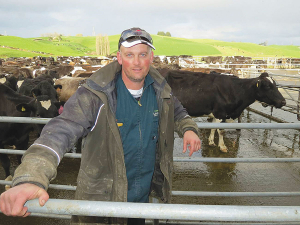Farmers will continue to apply pressure on the Government and hope for a change of heart on the need for skilled overseas workers.
Earlier this month, the Government declined an application by the dairy sector for 500 skilled workers from overseas.
Federated Farmers immigration spokesman Chris Lewis says the Government is set to deliver its budget this week, aiming to grow the pie and reduce debt.
“For that they would need the economy to grow, but how can you with your biggest export sector facing a worker shortage,” Lewis told Rural News.
He says farmers will continue to advocate on the issue, hoping the Government realises how worrying the situation is.
Federated Farmers and DairyNZ applied in March for 500 overseas workers after an industry-wide survey to gauge the level of worker shortage.
The industry had agreed on the number of hours of work per week, to pay workers a minimum wage of $25/hour and pay managed isolation and quarantine (MIQ) costs.
Lewis says while there is anecdotal evidence of more workers needed in the industry, the sector settled for a bare minimum 500. He points out that on the Farm Source website, there are 1,290 vacancies for farm workers, with more vacancies posted on Facebook where young people hang out.
Lewis says the sector will continue to have robust discussions with Agriculture Minister Damien O’Connor and the Government on the issue.
DairyNZ chief executive Tim Mackle says having the Government application declined is disappointing and essentially lets farmers down, just as the sector heads into its peak period.
“We have real concerns for this season, including animal welfare, farmers working longer hours, increased stress and mental wellbeing issues,” says Mackle.
“DairyNZ continues to work hard to resolve long-term workforce issues. However, we have an immediate workforce crisis this season, due to Covid border closures. This decision is a blow to the sector.”
DairyNZ is pushing the Government to process the residency applications of those farm workers already in the country.
A recent joint DairyNZ-Federated Farmers labour survey emphasised that farmers are short staffed, with 49% of respondents stating they are currently short staffed and 58% of them experiencing increased stress levels.
National’s agriculture spokesman David Bennett has accused the Government of setting up the dairy sector to fail.
“The dairy sector has provided evidence of large scale skill deficiencies and the need for migrant labour,” says Bennett. “However, the Minister of Agriculture ignores this advice and instead focuses on tightening the Government’s grip on the dairy industry workforce.”



















